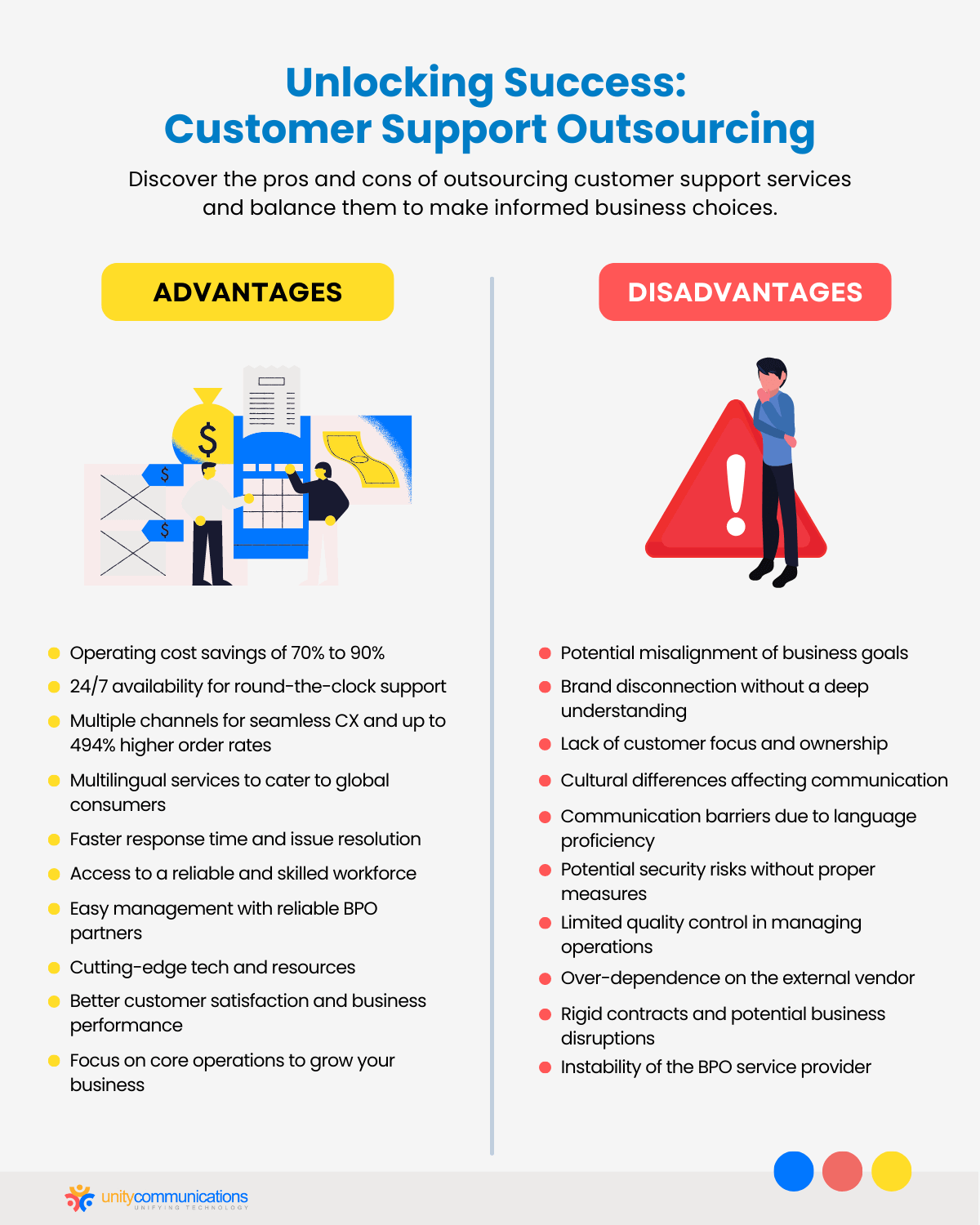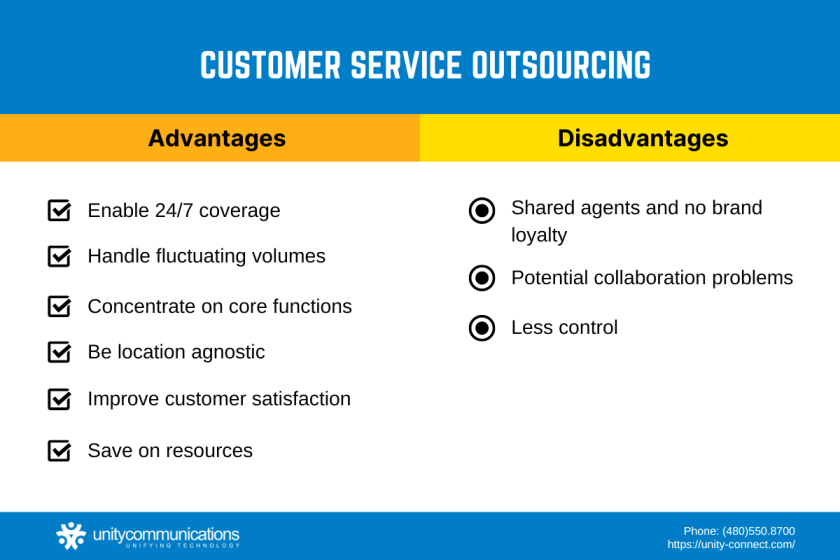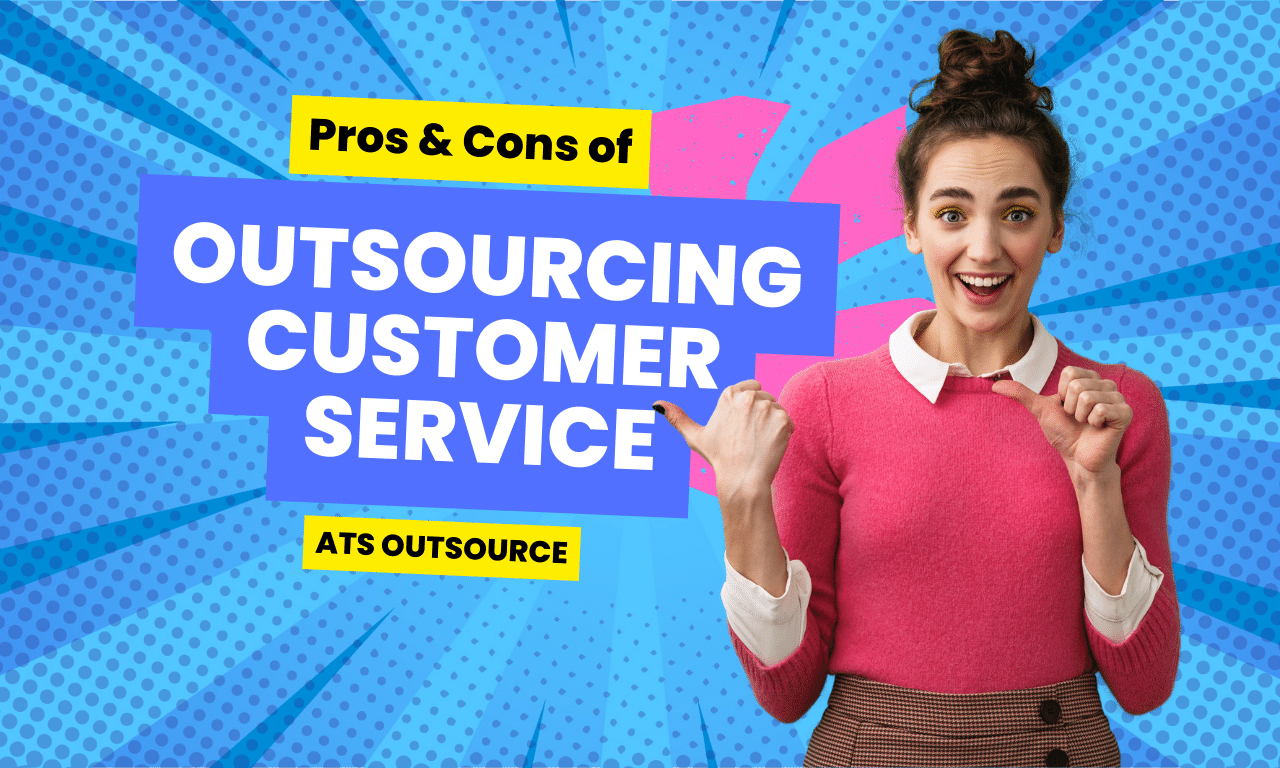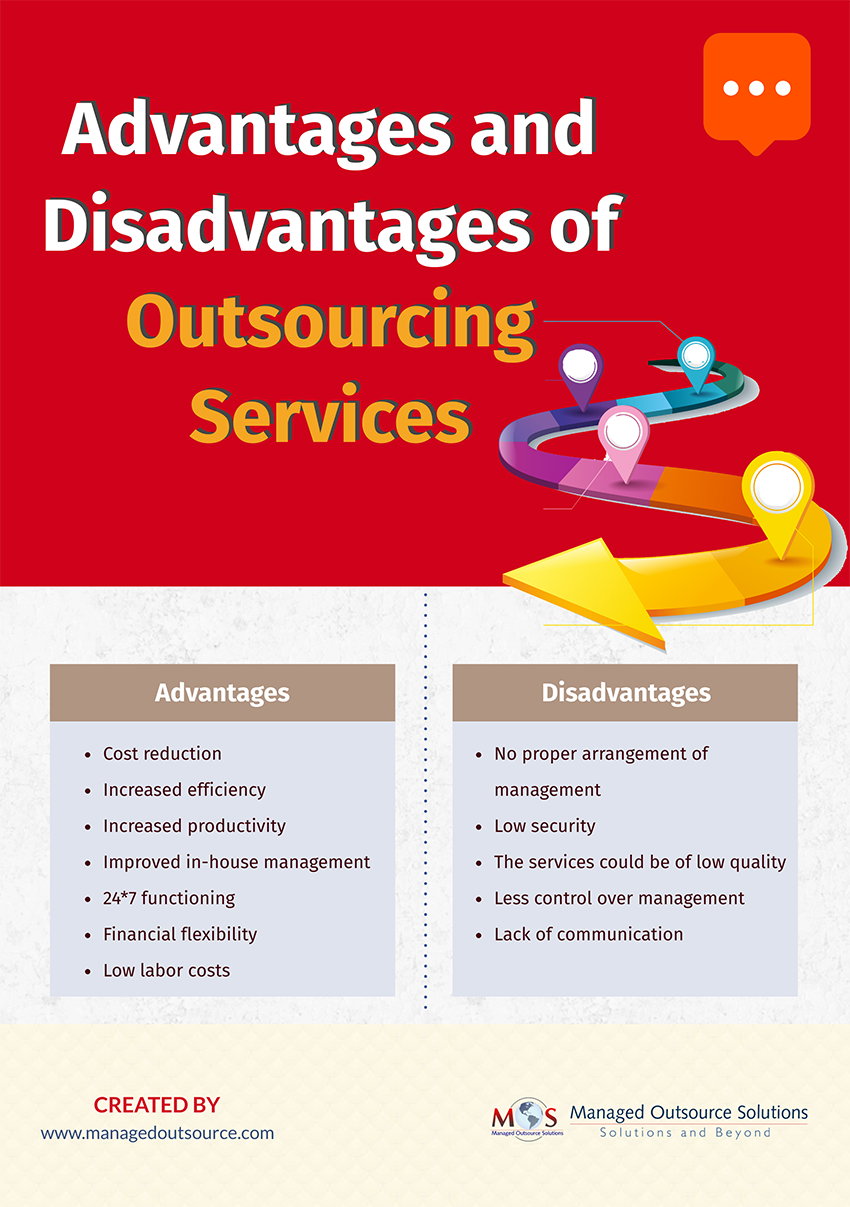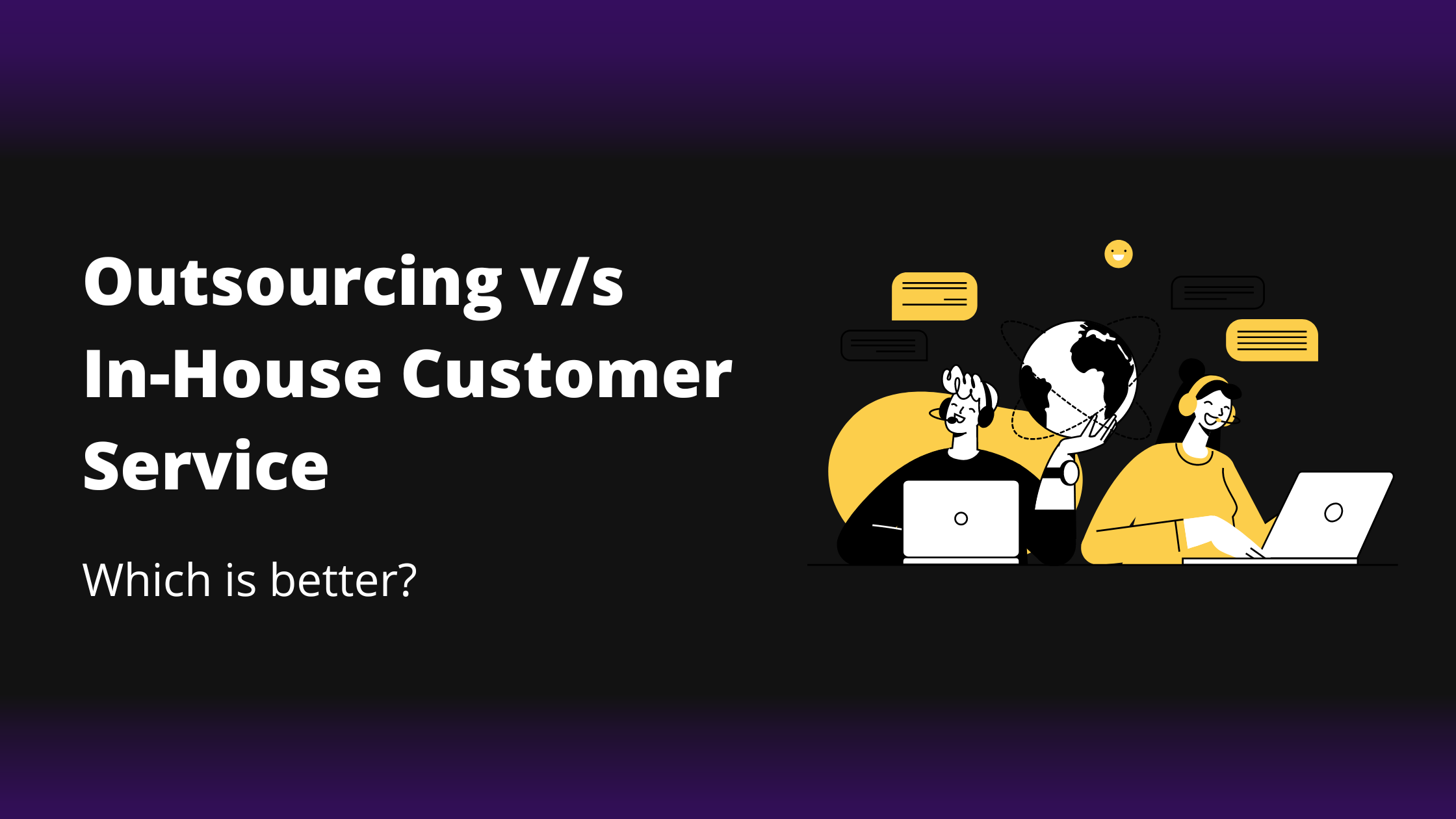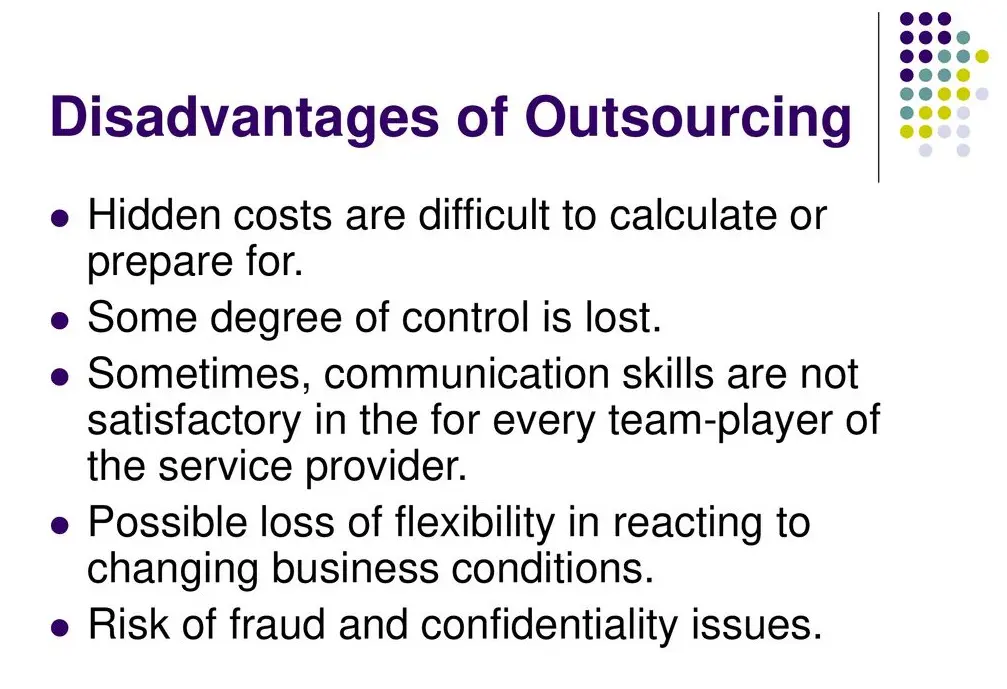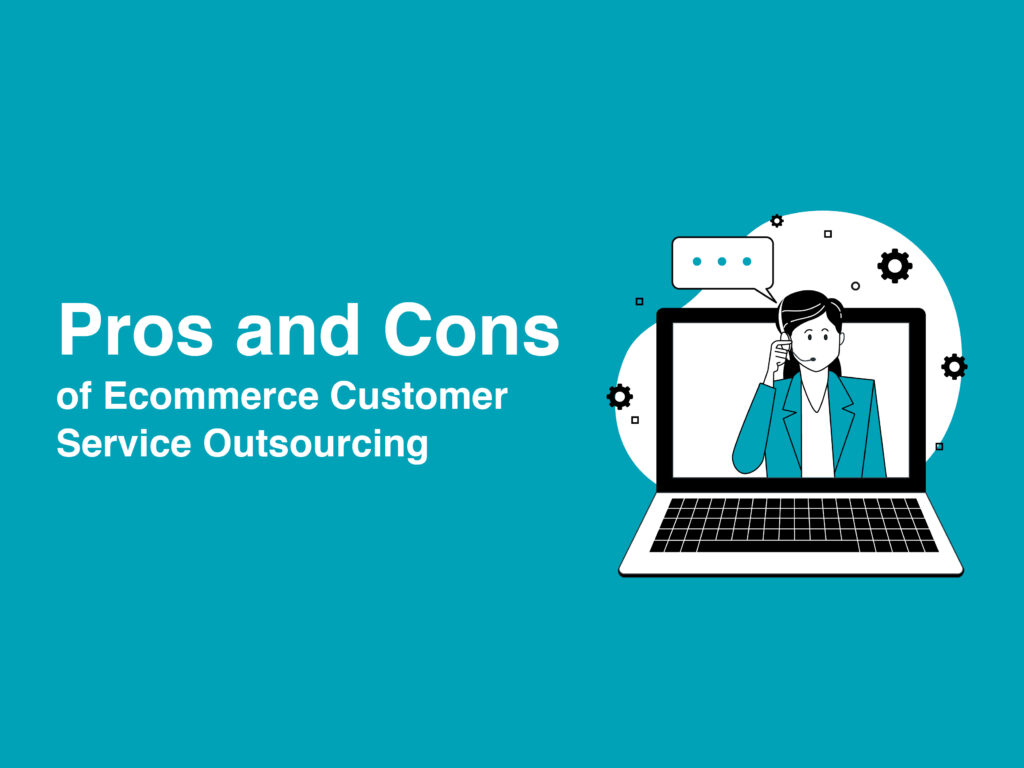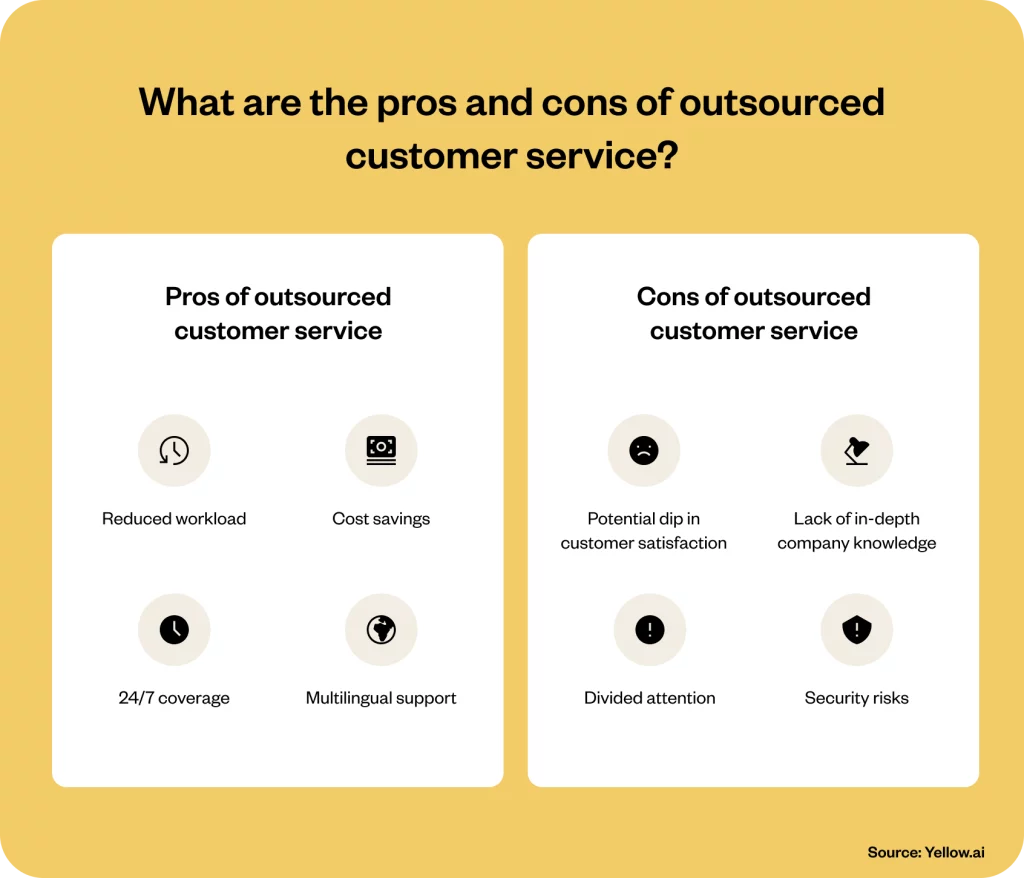Pros And Cons Of Customer Service Outsourcing
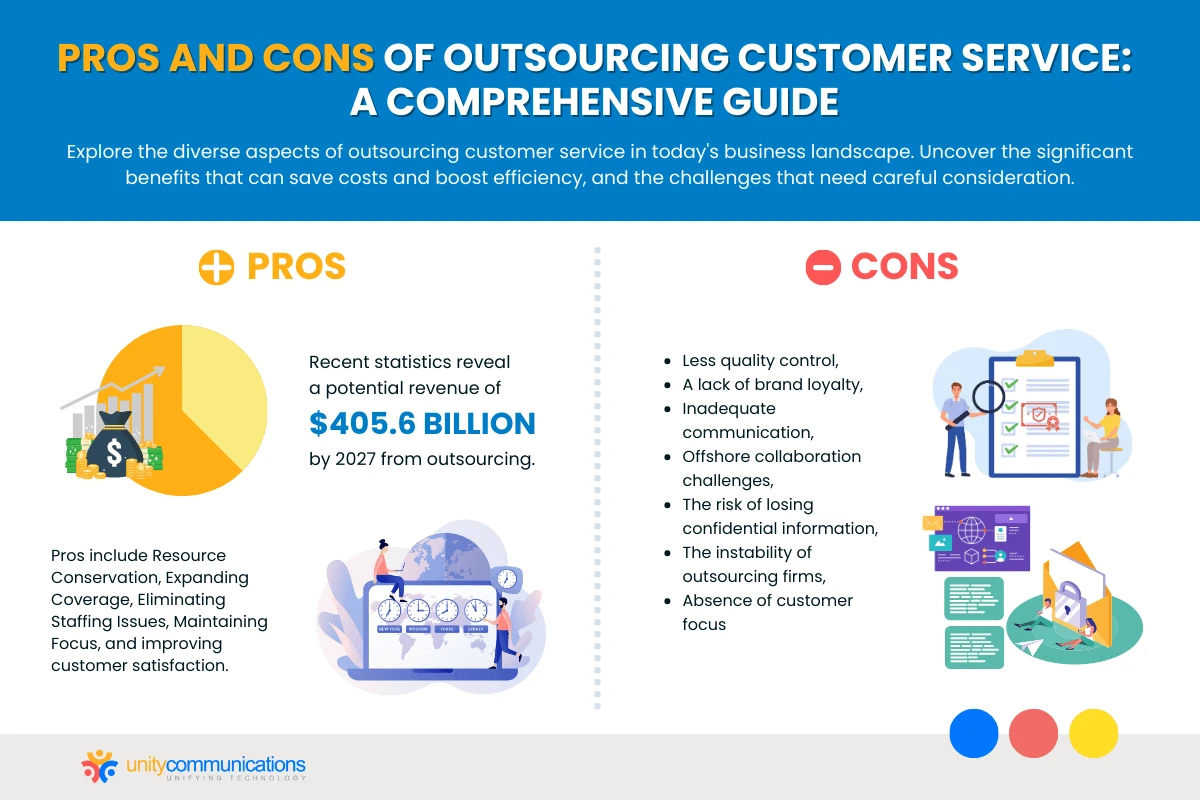
In today's hyper-competitive business landscape, customer service isn't just an afterthought; it's a critical battleground for customer loyalty and brand reputation. As companies strive to deliver seamless and personalized experiences, many are grappling with a pivotal decision: to handle customer service in-house or to outsource it to specialized third-party providers. This choice, fraught with potential benefits and pitfalls, demands careful consideration and a thorough understanding of the stakes involved.
The core question businesses face boils down to this: will outsourcing customer service deliver cost savings, improved efficiency, and access to specialized expertise, or will it lead to a decline in service quality, a loss of brand control, and potential security risks? This article delves into the pros and cons of customer service outsourcing, drawing upon industry data and expert insights to provide a balanced perspective on this increasingly important strategic decision.
The Allure of Outsourcing: Cost Savings and Scalability
One of the most compelling arguments for outsourcing customer service is the potential for significant cost reduction. By leveraging the lower labor costs in certain regions, companies can often handle a higher volume of customer inquiries at a fraction of the price of maintaining an in-house team.
Outsourcing also provides unparalleled scalability, allowing businesses to quickly ramp up or down their customer service capacity to meet fluctuating demand. This is particularly beneficial for companies experiencing rapid growth or seasonal peaks in customer inquiries.
Furthermore, outsourcing partners often possess specialized expertise and advanced technologies that may be difficult or expensive for companies to develop internally. This can lead to improved efficiency, faster resolution times, and a better overall customer experience.
The Shadow Side: Quality Concerns and Brand Control
Despite the potential benefits, outsourcing customer service is not without its drawbacks. One of the most significant concerns is the potential for a decline in service quality. When customer interactions are handled by third-party agents who may not be deeply familiar with the company's products, services, and brand values, the result can be impersonal, inconsistent, and ultimately unsatisfying customer experiences.
Another major challenge is the loss of brand control. Outsourcing partners may not always adhere to the company's brand guidelines or maintain the desired level of professionalism, potentially damaging the brand's reputation.
Security risks are also a significant concern, particularly when dealing with sensitive customer data. Companies must carefully vet their outsourcing partners and ensure that they have robust security measures in place to protect customer information from breaches and unauthorized access.
The Human Element: Communication Barriers and Cultural Differences
Communication barriers can arise when outsourcing to companies in different countries or regions. Language differences, accents, and cultural nuances can all impede effective communication and lead to misunderstandings.
Cultural differences can also affect how customer service agents interact with customers. What is considered polite and professional in one culture may be perceived differently in another, potentially leading to awkward or even offensive interactions.
Furthermore, employee turnover rates tend to be higher in outsourced customer service environments, which can lead to inconsistency and a lack of continuity in customer interactions. This can frustrate customers and erode their trust in the company.
Finding the Right Balance: Hybrid Models and Strategic Partnerships
Increasingly, companies are adopting hybrid models that combine in-house and outsourced customer service capabilities. This allows them to retain control over critical customer interactions while leveraging the cost savings and scalability of outsourcing for more routine tasks.
Building strategic partnerships with reputable outsourcing providers is also crucial. Companies should carefully evaluate potential partners based on their track record, expertise, and commitment to quality.
Establishing clear service level agreements (SLAs) and monitoring performance metrics are essential for ensuring that outsourcing partners are meeting the company's standards and delivering the desired results. Regular communication and feedback are also vital for maintaining a strong and productive relationship.
Looking Ahead: The Future of Customer Service Outsourcing
The future of customer service outsourcing is likely to be shaped by several key trends. The rise of AI-powered chatbots and virtual assistants will automate many routine customer interactions, freeing up human agents to focus on more complex and challenging issues. Data analytics will play an increasingly important role in optimizing customer service processes and personalizing customer experiences.
Ultimately, the decision of whether or not to outsource customer service is a complex one that requires careful consideration of the specific needs and circumstances of each individual company. By weighing the pros and cons, carefully selecting outsourcing partners, and implementing robust monitoring and control mechanisms, businesses can harness the potential benefits of outsourcing while mitigating the associated risks.
As customer expectations continue to rise, delivering exceptional service will become even more critical for success. Companies that can find the right balance between in-house and outsourced capabilities will be best positioned to thrive in the increasingly competitive marketplace.
